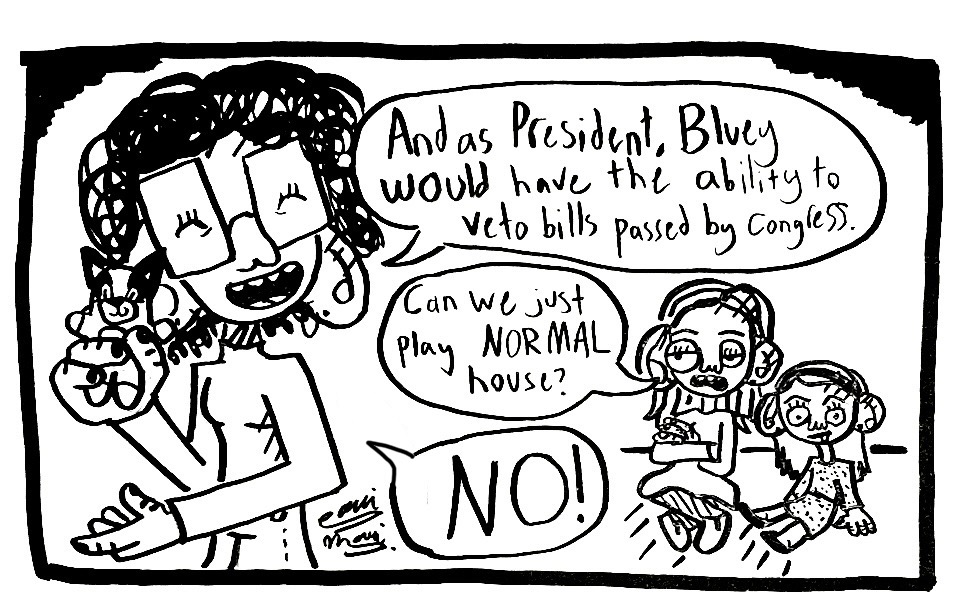From resume and cover letter advice to graduate school application tips, there are many answers that seniors are looking for as their last undergraduate year comes to an end. But it’s not always easy to ask for help.
GW should take more active steps to show seniors that they care about what they do once they leave Foggy Bottom by requiring them to go to a mandatory session with an adviser where they’re asked about post-graduate plans and receive guidance about what to do next. It’s easy for the University to say it’s the student’s fault for not seeking help, but GW should go a step further to ensure that students don’t fall through the cracks.
The first session should be a group meeting of about five to seven students in the first few weeks of senior year where each student tells the counselor about their future plans. The sessions should be run by two to three senior class advisers that are hired to focus on helping seniors with their career path. This would ease the burden on advising offices and the Career Center and give seniors the specific help they need, allowing the process to become more efficient. After that, students would be required to attend a one-on-one session with a senior class adviser where they would go into more depth about their plans and continue to meet for as long as the student and counselor think is necessary.
Hiring advisers to help only seniors would mirror New York University’s Gallatin school, which employs two senior class advisers who can assist seniors with everything from course selection to more specific needs like feedback on fellowship proposal drafts and how to ask for a letter of recommendation. GW wouldn’t be the first school to require all seniors to meet with an adviser either. University of North Carolina at Chapel Hill requires its students to meet with their adviser before the end of their seventh semester, while American University’s honors program puts a hold on the student’s record if they fail to meet with an Honors counselor before the start of their senior year.
In the last few months, I have struggled to figure out exactly what I want to do after I graduate in May. I used to be positive that I wanted to go to Columbia University to get my master’s degree in journalism, but then I started looking at jobs online and realized just how much employers emphasize experience when hiring people. But it’s also emphasized that we should have at least a master’s if we truly want to stand out. Since I plan on only staying in the U.S. for another year after I graduate before moving back to Colombia, I must decide whether to get my masters degree right after graduation, or immediately enter the job market.
After just one week into my senior year, this decision already had me panicking. I had no one in my family to turn to for advice because I only have one cousin who works in sports journalism, so her knowledge is limited when it comes to my aspirations of becoming a political journalist. Suddenly, I began to rethink all my plans after graduation, and honestly had no idea who to talk to.
I never truly considered going to the Career Center because I plan to work in Colombia and I doubted that the career counselors could help me get a job in another country. Luckily, I did talk to my cousin, who advised that the best thing for me was to go to graduate school since it is an opportunity that will help me in the long run. But mandatory career advice at the beginning of the year could have avoided this anxiety.
Critics of this proposal may say that GW is already doing enough because they offer guidance sessions and have information available for students through programs like Handshake, but it should be the University’s duty to be more proactive and do more to help their students. No matter how much research students have done or what they think they know, they still could be missing important information. Talking to someone with more expertise like a counselor can show them opportunities they weren’t aware of. There’s an incentive for the school to help students too. Alumni with secure, high-paying jobs are more likely to make donations to the University in the future.
Now that I’m applying to Columbia, I find myself with even more questions than before, like how to send transcripts, what makes a good essay for graduate school and what would be the best articles to submit. In high school, my counselor was able to edit my essays and help me every step of the way. Now I wish I had that type of help again.
People can argue that because we are “adults” now, we must do everything on our own. But with a tuition as expensive as it is at GW, the University should care about its students. Hiring senior class advisers who must meet with all seniors at least twice will ensure that its graduates have a bright future ahead of them.
Laura Castro, a senior double-majoring in journalism and political science, is a Hatchet columnist.
Want to respond to this piece? Submit a letter to the editor.


